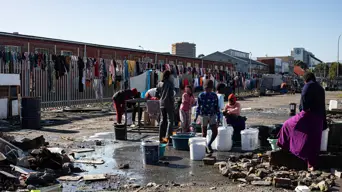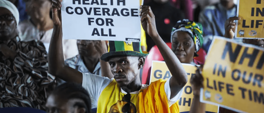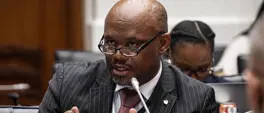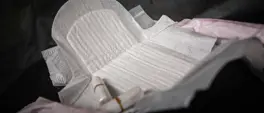'We don't want to be in South Africa' – Refugees plead for relocation as CoCT moves to evict
Kayleen Morgan
23 June 2025 | 4:07Hundreds of refugees living in tented camps in Cape Town say they’re not refusing help from authorities but were pleading for relocation out of South Africa as the city seeks a court order to evict them.
- CoCT
- City of Cape Town
- Refugees
- Department of Home Affairs
- Department of Public Works and Infrastructure (DPWI)

Refugees do their laundry at the camp site in Belville, Cape Town. Picture: Kayleen Morgan/EWN
CAPE TOWN - Hundreds of refugees living in tented camps in Cape Town say they’re not refusing help from authorities but were pleading for relocation out of South Africa as the city seeks a court order to evict them.
Around 360 foreign nationals, many of them asylum seekers, have been living in two temporary sites — Paint City in Bellville and Wingfield in Maitland — since 2020. About 800 of them were moved there after being removed from a church in Cape Town's city centre, where they had camped out in protest, demanding repatriation or relocation to a third country.
In a video statement posted on social media on 19 June, Cape Town Mayor Geordin Hill-Lewis said that the city was now moving forward with formal eviction proceedings.
ALSO READ: Foreign nationals at Bellville, Wingfield tent sites have refused all offers of help - Hill-Lewis
But the group at the sites said they weren’t fighting to stay in South Africa, they just didn’t want to be deported to the countries they fled. Many insist they’ve been asking for international relocation, not local reintegration.
Mayor Hill-Lewis told CapeTalk’s John Maytham that efforts from agencies, including the UNHCR, had not swayed what he called "die-hards":
"Even the United Nations Commission on Refugees has helped, or tried to help, but they have stubbornly insisted that they should be transported to Canada. They will only leave if they get free passage to Canada — which is obviously not going to happen."
"We don’t want to be here anymore. We just want the UN or someone to help us leave South Africa, but not go back to our country," said one refugee who spoke anonymously.
Congolese national, Mukanda Lambert, who lives at the Wingfield site, said it was untrue that they were occupying the land unlawfully.
"We didn’t come here by ourselves — the very same government put us here. I don’t know what game they’re playing."
Others who took up the offer to return to South African communities said that reintegration efforts have failed because the support offered was insufficient.
"Some of us took the money, but they haven’t really supported us," said a 24-year-old mother who was born in South Africa without documentation. "They only gave R2,000 per family to move and as a family of five how do you pay rent, buy food and other needs? We’d hoped they’d help us get our papers so that we can live normal lives."
In the same statement published via social media, the Department of Home Affairs said the eviction formed part of a broader effort to reclaim public spaces and enforce immigration laws.
"There were numerous offers made in cooperation with international agencies to relocate many of the people. Many of them took up the offers but some have refused and today we’re saying enough is enough," said Home Affairs Minister Leon Schreiber.
"The department recently launched 'Operation New Broom' to signal our commitment to enforcing the rule of law when it comes to illegal immigrants occupying public spaces."
The land occupied by the camps is earmarked for possible future social housing projects in partnership with the city, according to Public Works Minister Dean Macpherson.
Meanwhile, those who remain at the camps described life as increasingly dire, with a lack of sanitation leaving people to use plastic bags, makeshift structures from cardboard have been erected inside the tents and illness is common.
"We live like we’re not human," said one woman. "But still, we stay because there’s nowhere else to go. If the eviction is successful, we’ll be here waiting for the City of Cape Town to throw us out."
With eviction proceedings now formally under way, many refugees said they'd have no choice but to wait on the city’s next move because they had nowhere else to go.
Get the whole picture 💡
Take a look at the topic timeline for all related articles.















